Phase 4: The Ultimate Market Integration and Tourism Development
Overview of Market Integration and Harvest
Phase 4 of Jessie’s Sunshine Farm signifies the beginning of true productivity and community integration. With the multi-canopy planting systems established and maturing from previous phases, this stage focuses on harvesting readiness, product processing, local market distribution, tourism operations, and full activation of e-commerce systems.
The farm, now a fully operational ecosystem, enters its first cycles of yield and output, transitioning from preparation and planting into sustainable production.
The overarching goal of Phase 4 is to unify all parts of the farm. From the soil and crops to logistics, technology, and visitors. This will happen under one harmonious rhythm of growth and livelihood.
This is the stage where Jessie’s Sunshine Farm evolves from a project into a self-sustaining agricultural enterprise and learning destination, contributing directly to the economic life of its surrounding communities.
Harvest and Production
1. Production and Early Harvest Cycles
By Phase 4, the earliest planted crops such as bananas, papayas, calamansi, and selected coconuts begin yielding their first harvests. These early harvests serve as both testing and training opportunities for refining the farm’s harvest routines and post-harvest handling systems.
Maintenance programs continue from Phase 3, focusing on:
– Regular pest and disease inspections, especially during fruiting seasons.
– Implementation of harvest schedules aligned with the maturity cycles of different crops.
– Introduction of record-keeping tools within the digital farm management system to monitor yield volume, quality, and sales readiness.
The goal is to develop predictive harvesting cycles and to ensure consistent supply for local markets while maintaining tree health and soil fertility. This will also monitor and predict cash flow and liquidity.
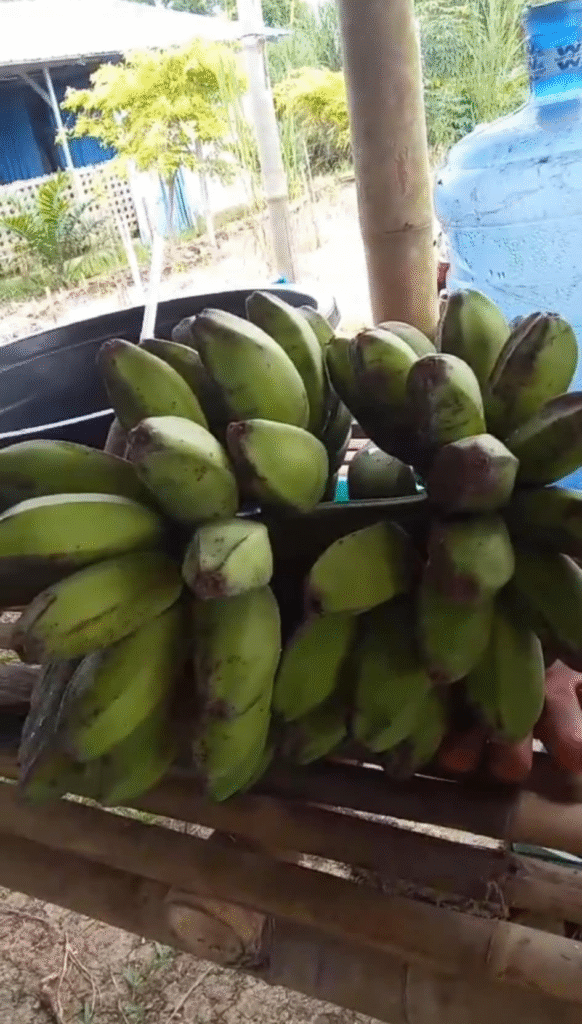
2. Processing of Coconut Products
The farm’s primary long-term income stream begins to materialize through the processing of coconuts, centered on two key products:
Virgin Coconut Oil (VCO) Production
Virgin coconut oil production becomes one
of Jessie’s Sunshine Farm’s hallmark value-added processes.
Using hybrid, Tacunan, and Catigan coconut varieties, the farm establishes small-scale processing methods. A cold-pressed and natural fermentation that will produce pure, chemical-free oil suitable for both domestic use and niche health markets. The VCO is branded as a premium, farm-origin product, representing purity, sustainability, and local craftsmanship.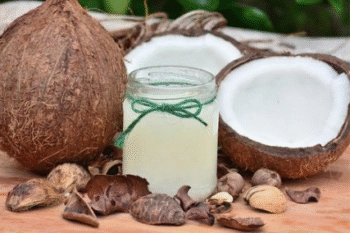
Copra Production
Parallel to VCO, copra processing provides a steady bulk product for trade and industrial buyers. The copra is dried and processed on-site, utilizing solar-assisted dryers and storage areas designed to maintain quality and minimize waste. This production arm feeds into local trading networks, forming consistent revenue streams while strengthening regional agricultural partnerships.
These twin coconut industries lay the foundation for future agro-industrial diversification — such as coconut flour, shell crafts, and natural skincare products — envisioned for later phases.
3. Market Distribution and Regional Trade Network
To ensure economic sustainability, Jessie’s Sunshine Farm establishes a structured local market distribution system anchored on efficiency and consistency.
Target Market Areas
The farm’s produce, including coconuts, bananas, value fruits and value-added goods, is distributed weekly to:
Masimag
Mahayahay
Maramag
Don Carlos
Dancagan
Kibawe
Kadingilan
These towns represent a strong agricultural and commercial network across Bukidnon, providing reliable access to trading posts, wholesalers, and agricultural trading companies.
5-Ton Truck Operations
The 5-ton truck, acquired in Phase 3, now serves as the logistical backbone for regional distribution.
Weekly delivery runs are scheduled, managed through the farm’s administrative system and the CRO.
Sales are handled on an order-based model, minimizing waste and ensuring fresh delivery to markets.
Return logistics are utilized for bringing in farm supplies, seedlings, and packaging materials, maximizing efficiency and fuel economy.
This regular trade route not only generates revenue but also strengthens Jessie’s Sunshine Farm’s presence in local agricultural markets, positioning it as a consistent and trusted supplier.
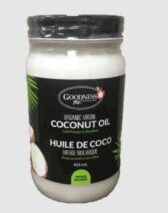
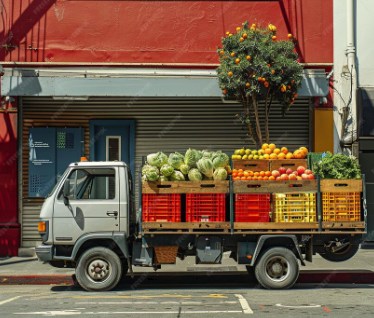
Farm Stays and Education?
4. Workshop and Production Support
With production intensifying, the workshop constructed in Phase 3 becomes essential for equipment maintenance, mechanical repairs, and training sessions.
Regular mechanical upkeep ensures the excavator, truck, and small farm machinery remain in top condition, minimizing downtime during harvest seasons.
The workshop continues to host technical learning sessions, training local workers and interns in machine operation, tool fabrication, and farm system maintenance — turning practical farming into a platform for continuous learning and community empowerment.
We are a Learning Site – Hands on Erudition
These activities foster a deeper appreciation for agriculture, turning Jessie’s Sunshine Farm into a destination for learning, relaxation, and connection to nature.
5. Tourism and Educational Integration
Beyond agriculture, Phase 4 marks the formal opening of Jessie’s Sunshine Farm to visitors and guests, fulfilling its dual mission as both a working farm and a place of learning and recreation.
Function Hall Enhancements
The Function Hall, now cleared of tools and fully dedicated to community use, has been upgraded with two group cottages. These flexible spaces accommodate:
– Agricultural seminars and farm training workshops
– Private functions, celebrations, and local gatherings
– Team-building events and agricultural education sessions
The hall now acts as a cultural and educational center, where guests can engage directly with the farm’s operations and philosophy of sustainable living in the province.
Recreational Farm Stays
Tourism expands under the concept of a “Coconut Plantation Experience”, offering both relaxation and hands-on learning:
Educational Tours:
Schools and local organizations are invited to explore agroforestry, composting, and sustainable management systems firsthand.
Work Vacations:
Guests can participate in daily farming activities like planting, harvesting, composting, and animal care. This is creating a genuine “farm life experience.”
Vacation Stays:
Visitors can rent cottages at the West Cliff or by the White Lady Mango Tree, surrounded by the serenity of coconut groves and fruit-bearing trees.
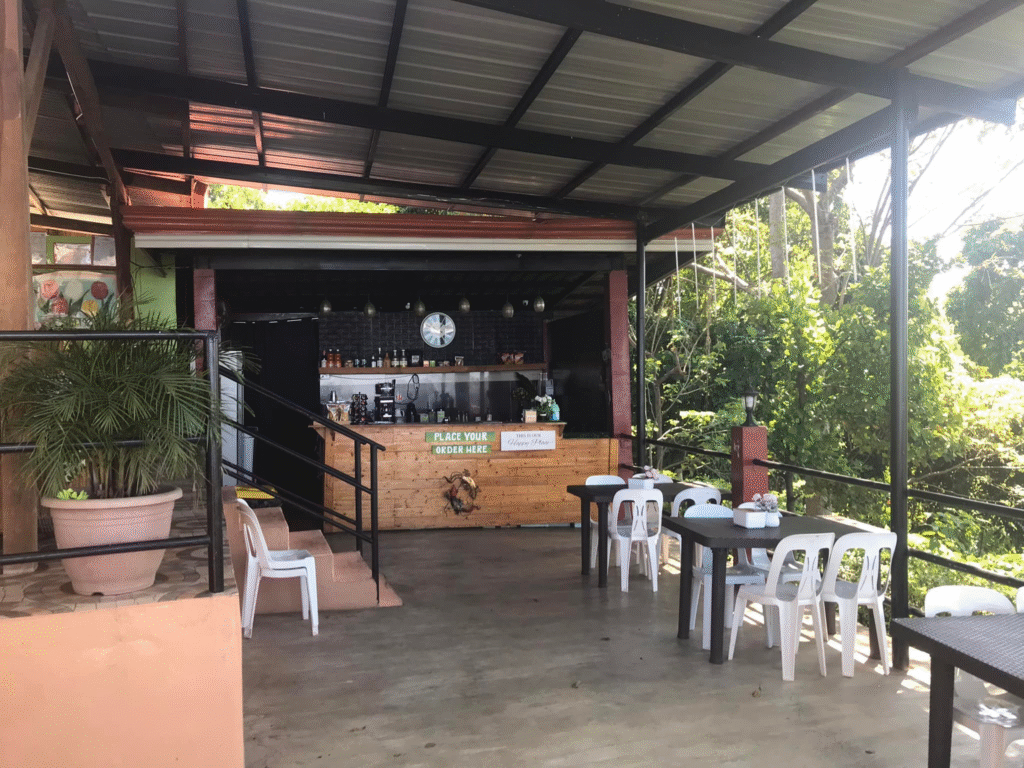
6. Digital Expansion and E-Commerce Optimization
As production and tourism scale up, the e-commerce website becomes a central tool for business management and market reach.
Phase 4 enhancements include:
Integrated online sales for farm products — fresh produce, processed goods, and seedlings.
Booking and reservation systems for tours, events, and accommodations.
Automated scheduling for deliveries, inventory updates, and payment tracking.
Marketing outreach campaigns, highlighting the farm’s eco-friendly production and community-based values.
This digital infrastructure allows Jessie’s Sunshine Farm to connect with regional buyers and nationwide consumers, bridging traditional farming with modern commerce.
7. Administrative and Operational Growth
The administration building, now fully functional, oversees the coordination of all farm sectors:
Day to Day Operation
Production,
Tourism,
Logistics, and
Marketing and Sales.
Key developments include areas of:
Timesheet management
Shipping and Handling Operations.
Standard Operation Procedures
Learning and educational Websites
Meetings on a Daily and Weekly base
Reporting sessions for strategic updates
Capital planning for reinvestment, CAPEX.
With these systems in place, operations run with greater clarity, accountability, and financial sustainability.
All Hands on Deck!!
8. Conclusion: A Living Model of an Integrated Agricultural Enterprise
Phase 4 represents Jessie’s Sunshine Farm in its first cycle of full operation. It has become a living ecosystem that produces, teaches, and inspires.
We do everything to honor our Lord Jesus Christ
The fields now yield fruit and oil; the trucks carry produce to surrounding towns; visitors walk beneath the coconut canopy, learning the rhythm of the land.
Through balanced integration of production, processing, trade, and tourism, the farm stands as a model of regenerative agriculture and rural innovation. Jessie’s Sunshine Farm is proving that sustainability, community, and enterprise can thrive together under the same sunshine, Amen.